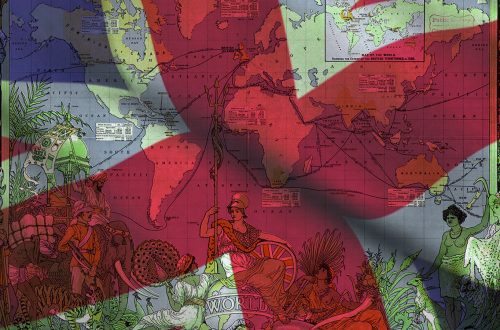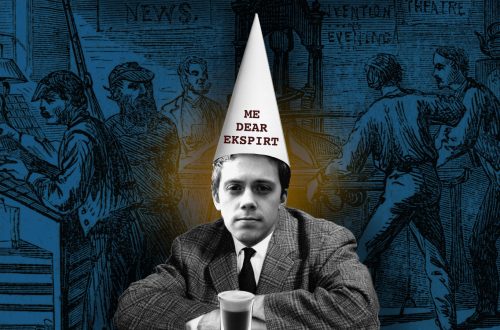So, there’s the spat going on between Sunder Katwala and Nick Cohen, over the following passage:
When I asked Shiraz Maher, the co-author of the Policy Exchange report, why he had not offered his work to the leftish Fabians or Institute for Public Policy Research, he guffawed. They would never print what he wrote. For this Muslim liberal, the left was no longer a home but an obstacle.
Said Sunder:
I will set out why I think Cohen, Maher and Husain are wrong to make this charge – and why I think it suggests a lack of serious engagement on their part. Let us find out if they will, on reflection, wish to withdraw it.
I find this lazy slur factually wrong, politically regressive and personally offensive. And it reflects very shoddy journalism on Cohen’s part. Despite specifically choosing to identify the Fabians (and the ippr) in his Observer column as responsible for, at least, an abdication of democratic responsibility, Cohen did nothing whatsoever to get in touch with those he lambasts.
A complaint was made to the Observer Readers Editor. A letter was signed by some Labour supporting Muslims, along with a Tory journalist and a couple of people associated with a political foundation founded by a senior Jamaat-e-Islami figure (who remains a trustee), that some interpreted as a call for Nick Cohen to be sacked, but others did not. Asim Siddiqui and Martin Bright have both been drawn into the spat.
At the heart of the issue is the question as to whether the Fabians or the IPPR would publish the sort of report that Shiraz Maher wrote.
I am hugely heartened by Sunder’s forthright and angry denial of the “slur”. The Left should be actively opposing antisemitic terrorist politics, and groups that seek to establish a theocracy in which women and non-Muslims would be systematically discriminated against. Were the Fabians to refuse to publish a work critical of the “Moderate Muslim Brotherhood” thesis, then an important part of the Left would be utterly lost.
Indeed, the Observer Readers Editor has ruled as follows:
Katwala told me that Maher had never had any contact with the Fabians or the IPPR, but “his co-authored paper is quite good; it contains nothing we could not have published”, so it would appear that Maher and Cohen’s accusation of censorship is without foundation in this case.
On that basis, the Fabians appear to be leaning away from the ‘partnering with “non-violent Islamists”” position. That is an excellent outcome.
The IPPR, by contrast, does appear to have bought wholly into the “Moderate Muslim Brotherhood” thesis. Have a read of this article:
Non-violent Islamists are much more likely to come across Al Qaeda recruiters and recruits than moderates, who do not move in those circles. And unlike most mainstream Muslim leaders, Al Qaeda’s Islamist critics have the credentials to make their criticism bite. If, as seasoned former counter-terrorism officer, Bob Lambert, observes, ‘Al Qaeda values dozens of recruits over hundreds of supporters’, can the government really afford to do business only with moderates?
…
We must have two aims in all of this: save lives and build a cohesive society. The two are inextricably linked. A surefire way to set community cohesion back in this country is for another bomb to go off. A community-based approach to counter-terrorism is required. Communities can provide warning, when Al Qaeda won’t. They can help the police both to understand what might be of concern and to avoid unnecessary grievance. And, as a last resort, they can help them into a teenager’s bedroom – or give them the keys to Finsbury Park Mosque – when they don’t want to have to kick the door down.
This is an endorsement of Leiken, Bergen and Cruikshank, and specifically Lambert.
That is all well and good. Except that one of the people that Lambert handed over the Finsbury Park Mosque signed the Istanbul Declaration. Working closely with government didn’t stop Daud Abdullah from signing that Declaration. Neither did a visit from the Lord Chief Justice, where he endorsed Sharia law, stop the Imam of the East London Mosque signing the Istanbul Declaration either.
So, please, remind me again what precisely the process of engaging with supposedly “non-violent Islamists” is supposed to achieve? Evidently, it hasn’t stopped them from threatening Jihad the moment they step outside the United Kingdom.
What worries me is this. There is a section of the Left which has now come to the conclusion that threats of Jihad against British forces, and against Jews within and without Israel, is just ‘resistance’. I believe that they have bought into the Conflicts Forum thesis, and have decided that we have to cultivate these people, if we’re to stop Al Qaeda.
Of course, if Andy Hull of the IPPR is right about all this, then it is very important that Nick Cohen and Shiraz Maher be confounded and silenced. Perhaps the only people who can save us from the negative effects on social cohesion of a bomb going off, are extremists, who have the credibility to persuade the hotheads that there’s another way to gain power, other than murder.
Martyn Gilleard wanted to set off nail bombs to “save” Britain from black people. Robert Cottage was stockpiling explosive chemicals for a race war he believed was forthcoming. Neil MacGregor threatened to bomb Glasgow Central Mosque.
Clearly – if we are to follow the advice of the IPPR’s Andy Hull – the only solution is for the Government to engage closely with the non-violent extremists of the British National Party. We must provide them with buildings to meet and and organise from. Nick Griffin should be invited to Downing Street, to advise on immigration policy. We must minimise and cover up for their racism. We must accuse others, who question the wisdom of this policy, of anti-White bigotry.
This is, of course, a very stupid idea. By legitimising an extreme racist group, we would increase, not diminish racism. It would show that violence, and threats of violence, achieves real results. Nobody in their right mind would suggest such a policy.
There’s one final part of the IPPR article that I’d like to focus on:
And let us not forget that, like Maher, people can change their politics over time. Our own Cabinet is replete with former extremists, radicals and revolutionaries: Alistair Darling was a supporter of the British section of the Trotskyist Fourth International, Alan Johnson was a Marxist, and Peter Mandelson was a member of the Young Communist League. Martin Luther King was a radical cleric and the Archbishop of Canterbury was once arrested at a CND march.
Yeah. This is a very good point.
When people leave extreme and radical politics for good, they do it in style. Like Shiraz, they devote a part of their lives to explaining precisely how it was that they ended up engaged in vicious extremist groups, and doing their very best to explain how they think that politics can effectively be defeated. Or like Peter Mandelson, they poured their talents into making the Labour party a centre-Left, electable party.
Then, there are the entryists. Those who realise that the game is up for extremists, so try their best to sound conciliatory, at least when they’re speaking in English in the United Kingdom. But they can never quite bring themselves to speak out against Jamaat-e-Islami or the Muslim Brotherhood. They feel honour bound to defend Mawdudi and Qutb. And they’re very keen in finding good social democratic-sounding reasons to support the goals of extreme Islamist groups.
The Labour Party has had entryists in droves. If Andy Hull’s thinking represents a strand of Labour thinking on this issue, we’ll make a damn good target for a new wave of entryists.
But the bottom line is this. As far as the IPPR is concerned, it looks as if Shiraz and Nick were right.


